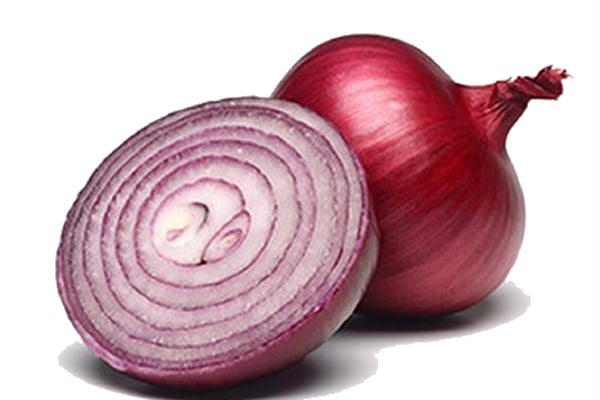The abundant benefits of eating onions

Onions are root vegetables grown worldwide and closely related to chives, garlic, shallots, and leeks. Whether eaten raw or cooked, the vegetable is loaded with several benefits
What you need to know:
Onions are root vegetables grown worldwide and closely related to chives, garlic, shallots, and leeks. Whether eaten raw or cooked, the vegetable is loaded with several benefits.
“My mother told me immersing onions in hot water and steaming with it unclogs the nasal cavity,” a colleague narrated in the wake of the second wave of Covid-19,
Then, many Ugandans decided to experiment with almost every herb they came across, including onions which others used as antioxidants.
Before that, onions have been known for starting a frying process in cooking different foods and an addition to salads and soups.
Also known as bulb onions, onions are root vegetables grown worldwide and closely related to chives, garlic, shallots, and leeks.
Onions vary in size, shape, colour, and flavour. The most common types in Uganda and most parts of the world are red, yellow, and white onions. Some can be sweet and juicy to sharp, spicy depending on which season and where one buys them.
They are high in antioxidants and sulfur-containing compounds, some of which may have several beneficial effects.
Although more research is needed, onions have been linked to improved bone health, lower blood sugar levels, and reduced cancer risk.
According to Nicholas Opiri, a nutritionist, onions are a good source of vitamins, minerals, and fibre. They also contain small amounts of iron, potassium, calcium, folate, magnesium, phosphorus, and the antioxidants quercetin and sulfur.
Immune defence
According to an article published by livescience, the polyphenols in onions act as antioxidants, protecting the body against free radicals.
According to the University of Maryland Medical Center, the quercetin in onions also reduces allergic reactions by stopping your body from producing histamines, which are what make you sneeze, cry and itch if you’re having an allergic reaction.
Opiri says the vitamin C (which remains intact while they are in the raw form) along with the phytochemicals present in onions helps build immunity.
Lower risk of cancer
Many kinds of onions, according to Opiri, contain a wealth of chemicals that help fight cancer.
“Onions are among the richest food sources of a nutrient called quercetin, which is known to prohibit the activity or creation of cancer-causing elements,” he said.
According to World’s Healthiest Foods from the George Mateljan Foundation, eating between one and seven servings of onions per week may help reduce the risk of colorectal, laryngeal, and ovarian cancer. Eating several servings of onions a day may help decrease the risk of oral and esophageal cancer.
Lower risk of heart disease, stroke
Organic sulfur compounds in onions (the reason for their strong taste and smell) help reduce the level of cholesterol in one’s body and may also help break down blood clots, lowering one’s risk for heart disease and stroke.
Opiri says that raw onion is known to lower the production of Low-Density Lipoproteins (bad cholesterol) thus keeping one’s heart healthy.
Downsides
Unpleasant body odour can be one of the downsides of eating onions. According to Opiri, when your body breaks down the sulfur compounds found in onions, they can react to sweat on your skin, creating what is generally considered to be an unpleasant body odour.
They may also increase gas and bloating for people with irritable bowel syndrome and can also worsen heartburn in people who suffer from chronic heartburn or gastric reflux disease especially when consumed raw.
Chewing raw onions, however, also improves oral health (though one’s breath may stink). They help eliminate bacteria that can lead to tooth decay and gum issues.
Preparation
Try to prepare onions close to the time you will serve them. Their flavor lessens, and their smell grows stronger the longer they sit after cutting.
Many people’s eyes tear up when cutting onions. To avoid this problem, you can cut onions under running water or chill them for 30 minutes before cutting. When you do cut an onion, leave the root end intact, as this part of the onion holds the most organic sulfuric compounds, which are what make you cry.
You can sauté, braise, boil, steam, bake, grill, caramelize, roast, or fry onions.
You can preserve onions by freezing, pickling, canning, or dehydrating them. Note that if onions have been frozen, they should only be used for cooking.




